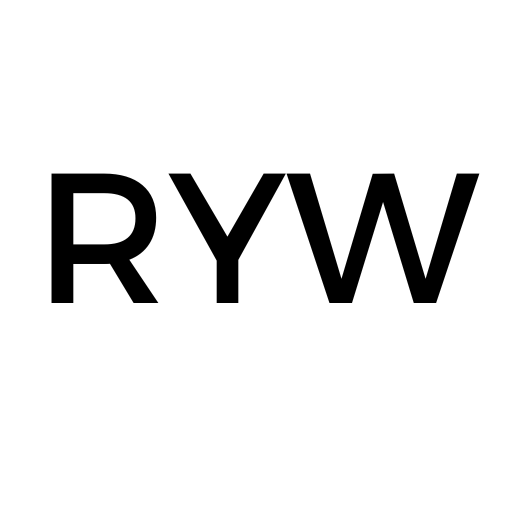
We discussed looking at your goals, asking yourself what you wanted, why you wanted it, and then the last bit: what do you think you’ll need to do to get it.
The thing is, often times what we think we need to do, and what we actually need to do, are not the same.
Assumption problem #1: overestimating requirements.
From what I’ve seen, authors set a goal of some sort. This can be a big, global goal, like “I want to be a multi-millionaire author” or “I want to hit the New York Times bestseller list” or a smaller goal, like “I want to quit my day job” or “I want my writing to pay for its expenses.”
Authors then make a lot of assumptions about what it will take to achieve these goals.
I need to write all the books! Do all the promotion, in every social media type! I need to overhaul my website! I need to buy ads! I need to chase a market trend!
The thing is… no matter which goal you have, odds are good you won’t have to do all the things, all the time, to perfection. There are a lot of places for you to have a minimum viable product, until you can afford the time or help for something better. You can triage, so you can choose only the requirements that are going to move the needle toward your particular goal, and focus on that.
This helps eliminate the overwhelm.
Assumption problem #2: overestimating capacity.
The second problem is the belief that we can do more in less time than is physically possible.
I see this a lot in December. Faced with the year end, a lot of authors who have not successfully finished a novel in two years are suddenly trying to figure out how little sleep they can go on to complete two books in three weeks.
First: you probably don’t need to write two books before the year end. That’s not a requirement. (Unless you’re under contract. Even then… that’s probably not going to happen.)
Second: the physical strain you would put yourself under to write two books, even short books, in three weeks is more than most people can manage, especially in a holiday season, or with a day job, or with other obligations. Being realistic is a big part of choosing requirements.
More than one way to do anything.
Being realistic doesn’t mean accepting defeat. Just because you can’t do something the way you’ve been told you have to, doesn’t mean that you’re throwing in the towel altogether.
My brother has described the different personalities between him, my Mom, and myself with the analogy of getting into a building that seems impossible to access.
My mother would probably bang on the doors, yelling, until someone acknowledged her, then get them to let her inside. (She is very persuasive.)
My brother would either wait to follow someone in, find another entry point in the building, or possibly figure out how to pick the lock.
According to him, I would drive a car through the doors. (He was proving a point. I am apparently relentless.)
The point is, there is always a a number of ways to achieve any goal. Some might not be the way you’d choose, and some might be unreasonable, but in even the most extreme “solutions” is usual a kernel you can use. You may need to get out of your comfort zone, but you don’t need to destroy yourself to accomplish it.
You are creative when you’re brainstorming ideas, or solving plot problems, or crafting characters out of whole cloth. Now, you get to apply it to your own career.
What’s currently possible vs. what’s required.
What’s ideal, then, is to look at what you want, then realistically map out:
1. What you’re currently capable of. How much time do you really have to work with. How much energy. How much help. You can work on slowly improving this — your productivity, or time management, etc. — but it’s better to start with a baseline and build in plenty of buffer.
2. What is really necessary to get where you want to go. Based on #1, what do you theorize will get you there? Bare minimum, respecting your capacity. You can add bells and whistles later.
But how do you know what’s really required? You’ve probably read tons of articles, gone to dozens of workshops. You’re on mailing lists. You’ve signed up for conferences. All of it seems so important, it’s impossible to tell what’s going to be the game changer and what’s superfluous.
Stop the information overload.
I quote Naomi from Ittybiz.com a lot here, because I have gotten an amazing amount of great information from her and her site.
One of her pieces of advice: choose 3 experts that you’re going to follow. People you trust, preferably whose advice has actually worked for you in the past.
Then: for the next (six months? year?) you’re just going to follow them for advice.
No “oh, that workshop looks amazing!” as you sign up for yet another class on Facebook ads, or how to make viral TikToks, or how to hop on the latest market bandwagon in serial fiction/erotic novellas/Amish vampires/whatever.
Just three experts.
Personally, I’d recommend one for craft (in a genre you write in, a person who understands the challenges you’ll be facing), one for business (again, book related,) and one for mindset (that doesn’t have to be in publishing.)
Between the three of them, and your clearly defined and gut-tested goals, you should be able to pin down what’s most important, and what’s truly required to get there.
If you’re still not sure.
Question everything.
For example, let’s say someone told you that you need a newsletter list of 10,000 people, and that you need to have it automated, separated into segments by how they came in, and you need to email them every week.
Ask yourself: why? Based on what I want, what do I think this will do for me? How will I know it worked the way I want it to?
Yes, in my opinion, newsletters are gold. And yes, weekly newsletters create better engagement with your audience and improve open rates. But for now, you might be better off just doing one a month, say, and checking open rates. Play with building your list, but dont worry about the segmenting and whatnot until you hit a larger threshold (especially if you’re starting small.)
And if you’ve got to make the choice between doing all the newsletter automation and writing the next book in your series — if that’s all your energy and time allows — then perhaps focus on the next book. Without more books, the audience you have, unless you’re actively growing it, might wander without fresh content.
Is that advice absolute?
No.
It will vary for each person. But it’s not about finding a blueprint. It’s about learning how to question. It’s about training yourself to make choices based on testing theories, then going back and checking if what you were trying to do worked.
Theory. Trial and error. Tracking. New Theory.
Rinse and repeat.
That’s it for the Play to Win series… for now!
If there’s anything you want me to cover in a future newsletter, please email me. I have some content planned, but I love answering questions. Odds are good if you’re puzzled by something, so are your fellow writers.
Thank you for hanging in here, and talk to you next week!
